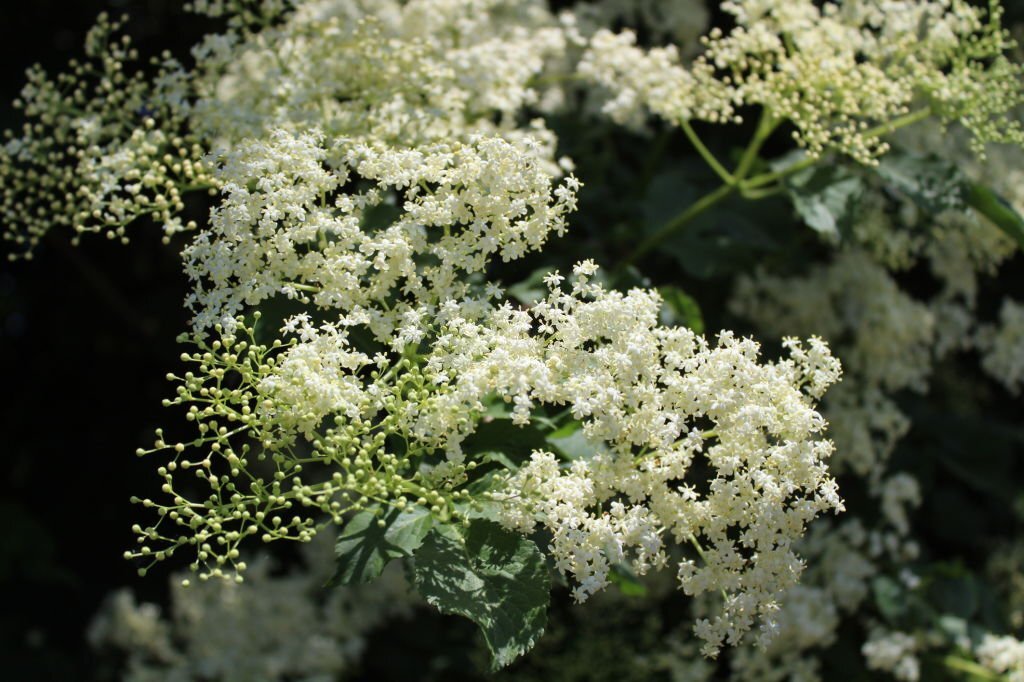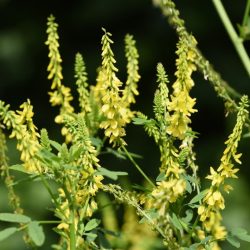To unearth the oldest written traces linked to the meadowsweet, it is necessary to wait for the Middle Ages, but they still have nothing to do with its medicinal value . It was made into crowns, especially at weddings, because its flowers symbolized virginity .
A little history
It was not in fact until the Renaissance that it was possible to assert that doctors used meadowsweet for therapeutic purposes .
Occasionally by Léonard Fuchs , Hieronymus Bock or even Jean de Gaddesden , the queen of the meadows had to wait until the 18th century in order to be able to make people talk about her again, through, for example, the voices of Haller (1742) and Gilibert (1792).
Later, the Swiss Pagenstecher applied himself to distilling the flowers of meadowsweet and noticed in the essential oil thus obtained the presence of salicic aldehyde , a compound chemically very close to salicin (active principle of aspirin) . In fact, people wondered: could it be that the willow and the meadowsweet are united by invisible bonds, Nature having endowed them with similar virtues?
What are the main pharmacological properties of meadowsweet flowering tops?
Anti-inflammatory and gastroprotective properties:
Meadowsweet contains salicosides, a prodrug metabolized into saligenin in the intestine, which is, after absorption, transformed into salicylic acid (and not acetylsalicylic acid ). As a result, it does not have the side effects of aspirin. The plant nevertheless has the same properties and reduces the synthesis of prostaglandins and thromboxanes by inactivating cyclooxygenase. It has an anti-inflammatory, analgesic and antiplatelet action .
This activity, demonstrated in vitro , involves the reduction of interleukin 6 (IL-6) and tumor necrosis factor alpha (TNF-α), and the inhibition of cyclooxygenases COX-1 and COX-2, with efficacy confirmed in vivo.
Immunomodulating properties:
Meadowsweet inhibits the action of complement and the proliferation of T cells. Its immunomodulating properties are of interest in ENT therapy, in particular for diseases of the upper respiratory tract and acute and chronic infections.
Anticoagulant properties:
Meadowsweet contains a substance analogous to heparin of animal origin, and therefore has significant anticoagulant and fibrinolytic activity .
Astringent properties:
Meadowsweet is also astringent . It causes a decrease in capillary and cell membrane permeability, as well as local vasoconstriction, and it has antidiarrheal activity . It is an excellent detergent for washing wounds and ulcers, which it speeds up drying.
Diuretic properties:
Meadowsweet is natriuretic, kaliuretic, and uricolytic (despite inhibition of proximal tubular uric acid secretion by salicylic acid ).
Antioxidant and cytoprotective properties:
Meadowsweet has high antioxidant activity : the phenolic extract of meadowsweet inhibits the oxidation of methyl linoleate by 75%. The water, methanol and ethyl acetate fractions of meadowsweet possess the ability to scavenge free radicals and superoxide ions.
Local administration of a decoction of meadowsweet has been shown to be effective in vivo (39% reduction in frequency of appearance of carcinomatous cells) and in humans (positive response in 32 patients, i.e. 67%, including 25 cases, or 52%, of complete regression) to treat dysplasia of the cervix, and to prevent cancer of the cervix.
Antibacterial properties:
Meadowsweet has antibacterial activity against Gram (+) and Gram (-) bacteria. It is active in particular against staphylococcus aureus and colibacillus (effect attributed to flavonoids and salicylic acid).
Are there any precautions for use concerning Meadowsweet?
Contraindications:
- Allergy or hypersensitivity to salicylates (aspirin).
- In people who must avoid aspirin because of another medication, or under certain medical conditions, in case of allergy to other anti-inflammatories (for example, history of angioedema, spasm or chronic urticaria ), asthma triggered by aspirin, Widal syndrome.
- Nephritis.
- Meadowsweet is not recommended for children with fever, due to the risk of Reye’s syndrome associated with the consumption of salicylates.
- Meadowsweet could increase uterine tone and stimulate uterine activity. Given the lack of sufficient data, the EMA does not recommend the plant in case of pregnancy or breastfeeding, as well as in children and adolescents under 18 years of age.
Side effects :
- The theoretical side effects of meadowsweet are those of the salicylic acid contained in the plant. Moreover, the significant presence of tannins exerts a protective astringent effect on the digestive mucous membranes and blood vessels.
Precaution for use:
- Methyl salicylate is regularly the cause of poisoning whose symptomatology is that of salicylate poisoning: 1 ml of methyl salicylate is equivalent to 1.4 g of acetylsalicylic acid (aspirin) and the quantities ingested are sometimes greater than 10 ml.
Drugs interactions :
- Caution in case of co-administration of antiaggregants, anticoagulants and nonsteroidal anti-inflammatory drugs. The EMA recommends medical monitoring in the event of an association.
- Monitor biology (INR) in case of association with anticoagulants.
- Potential interactions with warfarin.
- Contraindication with heparin and derivatives.
How to take Meadowsweet and at what dosage?
Dry form:
- As a food supplement, in the form of a standardized fresh plant extract in capsules , at the rate of 1 to 2 capsules per day.
Liquid form:
- Fluid extract of fresh plant standardized for officinal preparation : 5 to 15 ml per day in a glass of water.
- Integral suspension of fresh plant : 5 to 15 ml per day in water.
- Honeyed glycerine fluid extract : 5 ml 1 to 3 times a day in water.
- Hydroalcoholic extract : 20 to 30 drops, 2 to 3 times a day in water.
- Infusion : 2 very full teaspoons, in 150 ml of boiling water, 1 to 3 or even 4 cups per day.
Medical bibliographic sources and clinical trials :
- Abebe W., Herbal medication : potential for adverse interactions with analgesic drugs, J Clin. Pharm Ther., 2002
- Calliste C.A. et al. Free radical scavenging activities measured by electron spin resonance spectroscopy and B16 celle antiproliferative behaviors of seven plants; J Agric. Food. Chem., 2001
- Csedö K. et al., The antibiotic activity of Filipendula ulmaria, Planta Med., 1993
- Halkes S.B.A. et al., In vitro immunomodulatory activity of Filipendula ulmaria, Phyto Research, 1997
- Kähkönen M.P. et al., Antioxidant activity of plant extracts containing phenolic compounds, J Agric Food Chem., 1999
- Kudriashov B.A. et al., Heparin from the meadowsweet (Filipendula ulmaria) and its properties, Izv Akad Nauk SSSR Biol., 1991
- Liapina L.A., Koval’Chuk G.A. A comparative study of the action on the hemostatic system of extracts from the flowers and seeds of the meadowsweet. (Filipendula ulmaria Maxim.); Izv Akad Nauk Ser Biol., 1993
- Rauha J.P. et al., Antimicrobial effects of Fonnish plant extracts containing flavonoids and other phenolic compounds; Int J Food Microbiol., 2000
- Sroka Z. et al., Phenolic extracts from meadowsweet and hawthorn flowers have antioxidative properties, Z Naturforsh C., 2001
- Drummond E.M. et al., Inhibition of proinflammatory biomarkers in THP1 macrophages by polyphenols derived from chamomille, meadowsweet and willow bark; Phytother Res., 2013
- Ciuman R.R., Phytotherapeutic and naturopathic adjuvant therapies in ortorhinolaryngology, Eur Arch Otorhinolaryngol., 2012
- Peresun’ko A.P. et al. (Clinico experimental study of using plant preparations from the flowers of Filipendula ulmaria Maxim for the treatment of precancerous changes and prevention of uterine cervical cancer), 1993







